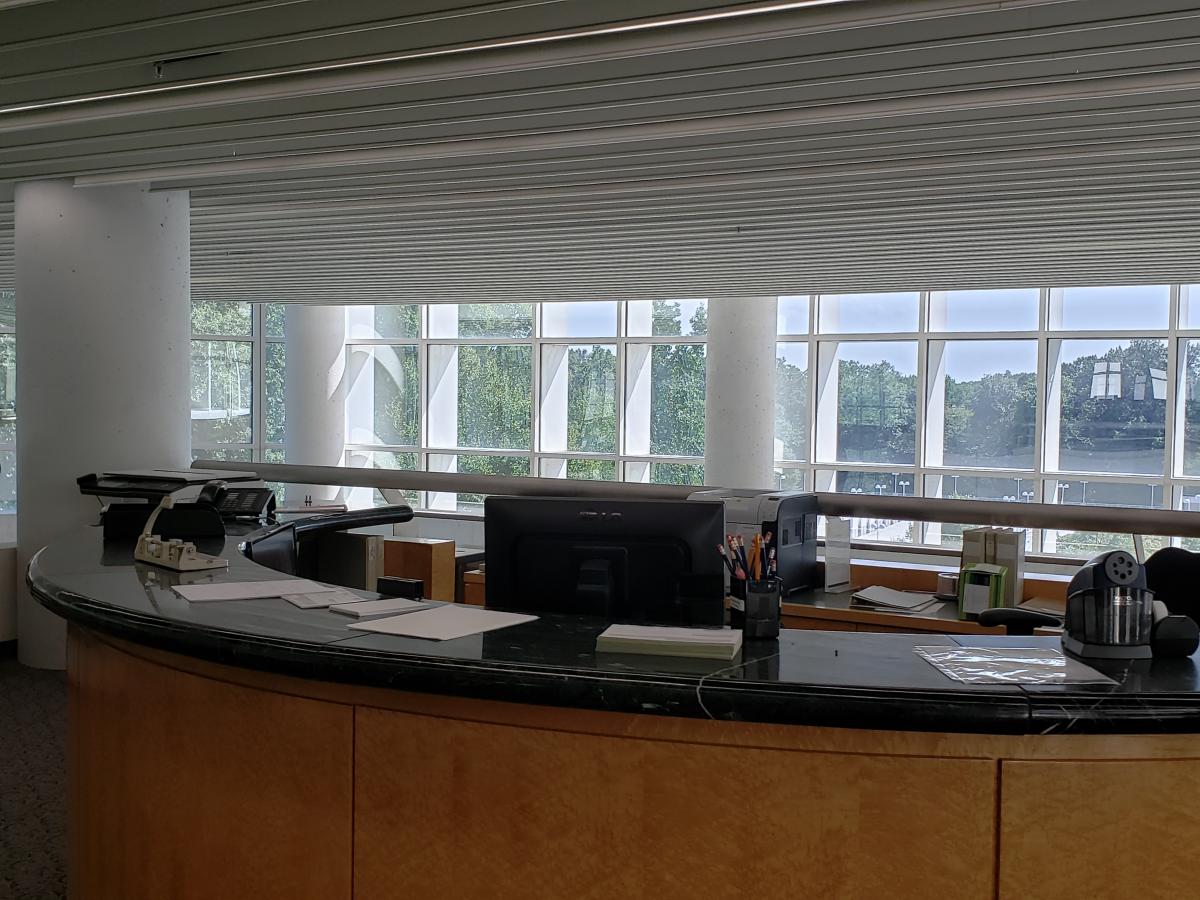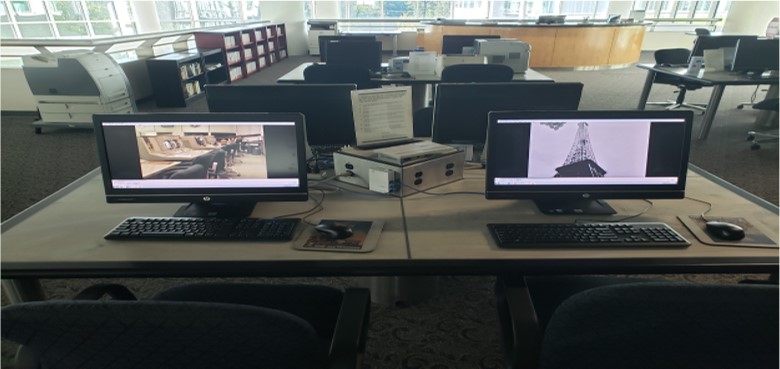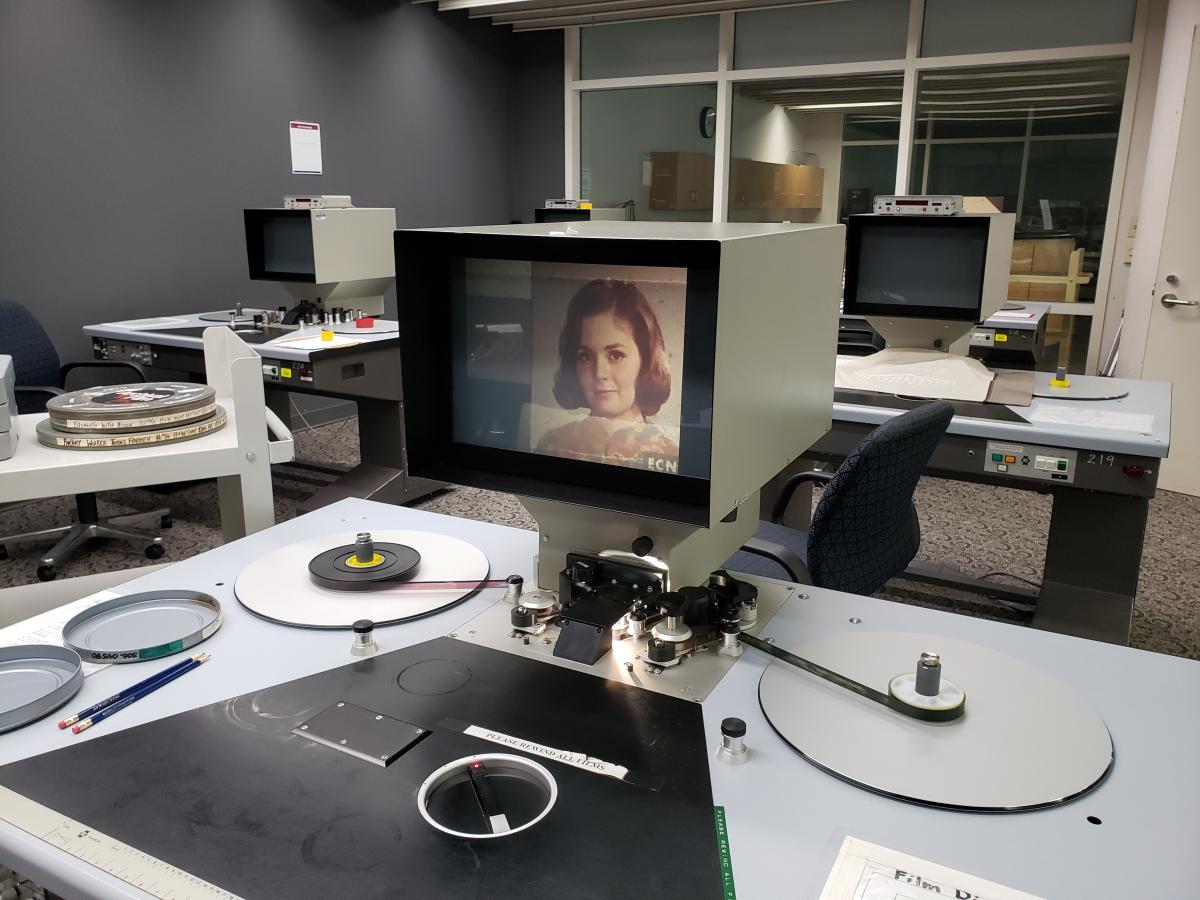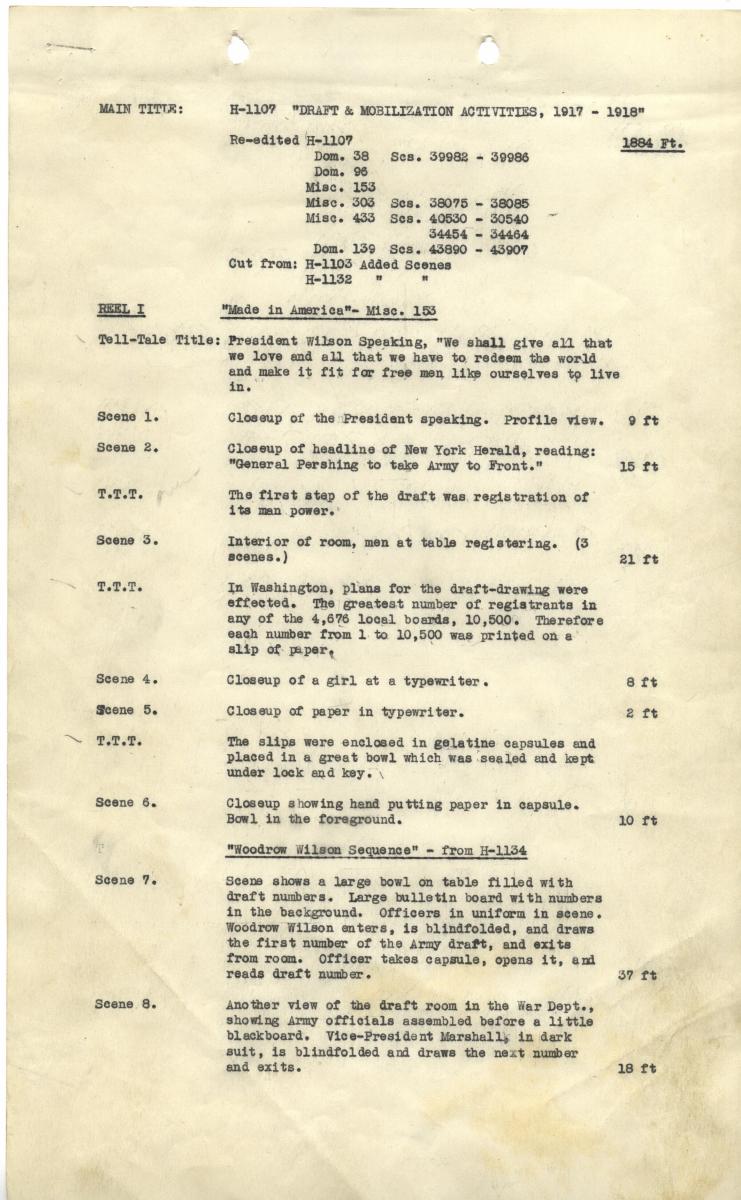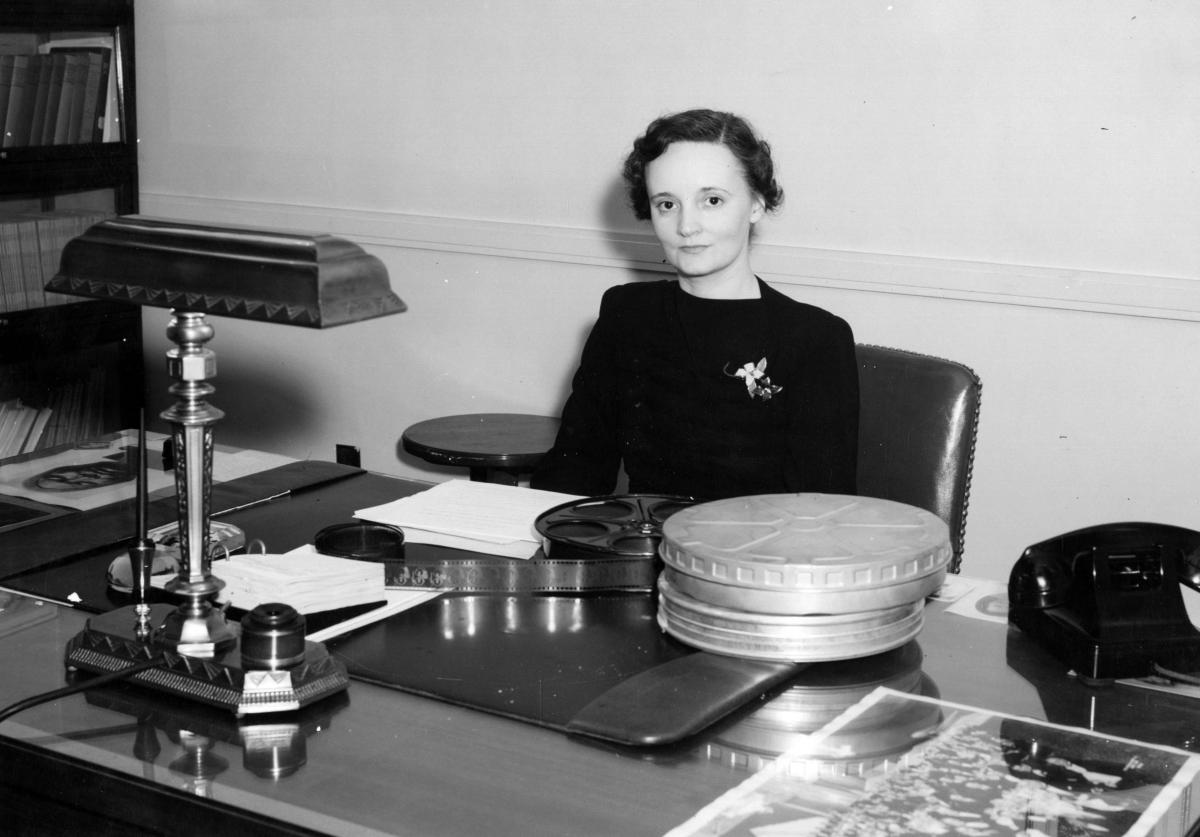
Visit the Moving Image and Sound Research Room in College Park, Maryland
Moving Image and Sound Research Room
Moving Image and Sound Research Room, 4th Floor
National Archives at College Park
8601 Adelphi Road
College Park, MD 20740
Email: mopix@nara.gov
Phone: 301-837-3540
- Research Room Appointments are encouraged but not required:
- To schedule a visit, please visit National Archives DC-area Research Appointments (through Eventbrite)
Research Room Hours
Monday-Friday, from 9 a.m. to 5 p.m. ET
In person reference consultation hours, from 9 a.m. to 4 p.m. ET
Email mopix@nara.gov if you have virtual consultation or appointment questions.
Records Retrieved from Stacks
Records will be pulled on a continuous basis.
To inquire about the availability of advanced pulls, please contact mopix@nara.gov.
Welcome to the Moving Image and Sound Research Room at the National Archives (NARA). This introduction is designed to familiarize you with the available resources for conducting your research, as well as the procedures that you are required to observe to safely handle and protect the materials you use. Please also see Historical Research at College Park, The National Archives at College Park, Maryland, Information for Researchers and Plan Your Research Visit for location, directions, and helpful tips to make your research visit to our College Park facility more productive and successful.
A Research Room monitor will be able to assist you upon entering the room at the front desk, where your researcher identification card will be swiped in to register your use of the room for the day. Reference consultants are also available Monday - Friday from 9 a.m. to 4 pm. to provide more in-depth assistance in getting you started with your research.
Research Room Resources
Research begins by consulting NARA’s Online Catalog, and finding aids available in our Research Room. You can search NARA’s Online Catalog and other online research tools in advance of your visit, or in the Research Room. Consultation and Reference staff in the Research Room can assist you with identifying potentially relevant holdings for your research, what types of reference copies are available for specific items, and how to access them. Staff can also help you prepare for your visit in advance by contacting us at our reference mailbox, mopix@nara.gov.
Public access computer terminals in the Research Room are increasingly used to search, identify, view and copy digitized NARA holdings. These computers are equipped with internet access to search the NARA’s Online Catalog and other online resources. They also provide access to digitized finding aids and a large collection of digital reference files. These computers, and self-serve reference copies on DVD, can be used any time during the room’s regular operating hours. Public access computer terminals are available to researchers on a first-come, first-served basis, and staff may ask that you limit your time on the computers if other researchers are waiting to use them. Please note that not all items from NARA holdings have been digitized.
Questions? Contact Us
Questions concerning the Moving Image and Sound Branch holdings may be directed to mopix@nara.gov .
Questions concerning the Nixon Presidential Materials may be directed to nixonreference@nara.gov .
For other questions or for more information about the National Archives, please visit our Contact Us page.
